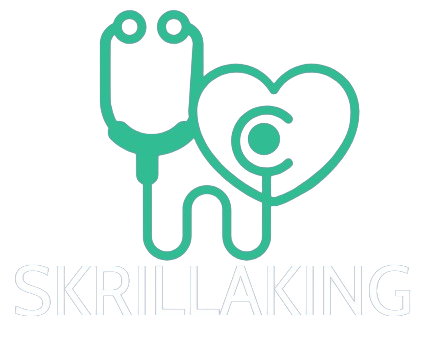No one wants to think about their own mortality nor the hard decisions that come with it, but it is important to be prepared and to have your wishes respected should the time come. Advanced directives and end-of-life planning provide individuals with a way to take charge of their own health and medical decisions should incapacitation occur. Read on to learn more about the importance of advanced directives and end-of-life planning.
1. Gearing Up for Final Goodbyes: The Significance of Advanced Directives & End-of-Life Planning
End-of-life planning is an important but often neglected conversation to have. It is especially important to plan ahead and create legal documents to ensure that your wishes are known following a terminal illness or injury. Advanced directives and end-of-life planning are tools that everyone should consider before a health crisis occurs.
The Benefits of Advanced Directives
- Ensure that your wishes are respected
- Outline care preferences for doctors, nurses, and other healthcare professionals
- Offer peace of mind for you and your family
- Reduce conflicts that can occur between healthcare personnel and family members
The process of making end-of-life decisions can be difficult. Consider who will make medical decisions on your behalf if you are unable to do so. You may choose a loved one, lawyer, or other professional. It is also wise to have a trusted friend or family member at the bedside to ensure that loved ones’ wishes are respected.
Having serious conversations about end-of-life planning is not always easy, but it is necessary. Creating advanced directives and planning ahead can help provide peace of mind in difficult times. Knowing that your loved ones that your wishes will be respected can give everyone involved a sense of comfort when the time comes.
2. Taking Care of Your Wishes and Needs: Why Making an Advanced Directive is Crucial
Our wishes and needs for quality of life take precedence over anything – but when we are unable to make decisions on our own, these concerns are left in the hands of doctors, family, and friends. By making an Advanced Directive however, you can specify your exact wishes and needs for care and ensure they are respected.
Creating an Advanced Directive serves as a critical tool for expressing your health care goals while providing peace of mind that your message of what is important to you will not be overlooked. In addition, it will help to minimize disputes over decisions that need to be made on your behalf.
Advanced Directives also allow you to appoint a health care proxy – a person you trust to make health care decisions on your behalf if you are unable to do so. He or she is then able to act according to your values and beliefs and consulting with your doctors in order to make these decisions in your best interest.
To get started on an Advanced Directive, consider the following:
- Write down your wishes and needs before you create the document
- Draft a clear and detailed document based on those wishes
- Choose someone you trust to serve as your proxy
No one can predict the future of his or her health, so it’s important to establish an Advanced Directive today. By taking the time to create one, you can ensure your values are respected in the event that you are unable to make decisions for yourself.
3. Preparing for the Unexpected: Pros & Cons of Different End-of-Life Planning Options
As you create your end-of-life plan, it is important to consider both the pros and cons of the different options available to you. Here are a few to keep in mind:
Outlining Your Wishes with a Will
- Pros: A will is an excellent way to clearly specify your wishes about how your assets will be divided and managed after you pass.
- Cons: This document does not offer any protection against challenges, and you may need to fund a trust to ensure that your wishes are enforced.
Trusts and Estates
- Pros: This provides more control over the distribution of your assets and outlines how they will be managed before they are transferred to your beneficiaries.
- Cons: Creating a trust and getting it approved by the state can be expensive and complex, and you may need to consult with a lawyer to set everything up.
Powers of Attorney
- Pros: This gives you the peace of mind of knowing that someone you trust will be able to act on your behalf should you become ill or incapacitated.
- Cons: This document can be complicated, and you must ensure that the individual that you designate to act on your behalf understands their roles and responsibilities.
No matter which option you choose, you should seek the advice of an experienced attorney, accountant, or financial planner before making any final decisions. Each situation is unique, and the best plan for one person may not be the best option for another.
4. Addressing the Hard Questions: Understanding the Necessary Steps for Advanced Directives
Taking the time to plan out your advanced directives is an important step that many individuals may find challenging. It’s normal to feel overwhelmed, but preparing for the future can bring peace of mind, both to you and your family. To make the process smoother, here are a few of the necessary steps for advanced directives:
- Educate yourself: Familiarizing with laws in your state and state-specific options can make creating the document simpler. Consider researching online or utilizing community resources such as group seminars to gain more knowledge.
- Assess your needs: Think about the level of decision-making power you’d like your agent to hold and two to four trusted individuals who would be willing to carry it out. Consider specifying the types of personal healthcare information you’d like to be released.
- Gather the needed materials: Start the process by gathering any relevant documents such as medical and insurance records. When ready, complete the advanced directive form provided by your state and then sign the form. It is important to note that the form will need to be signed and witnessed by qualified individuals.
Once the document is complete, you can rest assured that your wishes are represented for the future. Advanced directives are essential for safeguarding yourself and others. With the right decisions and preparation, the task of creating advanced directives becomes much less daunting.
5. Don’t Leave Loved Ones in the Dark: The Benefits of Speaking Openly About End-of-Life Planning
At some point, we all must consider our mortality. Yet many people struggle to openly and truthfully discuss end-of-life plans with the ones we love. We understand that it can be an emotionally wrenching experience and often put off having ‘the talk’ for as long as possible.
It is important to remember that talking to your loved ones about your end-of-life wishes now will make a tremendous difference later. Perhaps the most important benefit of discussing end-of-life plans is that everyone is assured that their wishes will be respected and carried out.
Other benefits of talking openly with loved ones include:
- Less Guesswork – Avoid the stress of confusion or miscommunication during an already painful time.
- Fewer Financial Griefs – By making your wishes know in advance, everyone can be certain that sufficient money is available for burial costs.
- A Sense of Closure – Ensuring that no decision needs to be made after your passing can enable your loved ones to heal and move forward more easily.
The important conversations won’t always be easy but it is essential that you don’t leave your loved ones in the dark. By taking the time to discuss your end-of-life wishes today, you can give yourself and your family peace of mind.
Planning for the end of life is an uncomfortable but necessary task. It is our responsibility to make decisions that are in our own best interest and will support our chosen wishes at the end of our lives. We hope this article has helped to shed light on why advanced directives are important and why end-of-life planning is a valuable task. Your peace of mind is worth the time and effort.


